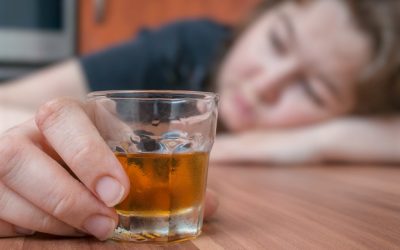These fluctuations play a vital role in the sleep-wake cycle, and when they are weakened—or absent—a person may feel alert when they want to sleep and sleepy when they want to be awake. For people who snore or who have sleep apnea—a disorder that causes repeated pauses in breathing during sleep—drinking alcohol tends to aggravate symptoms. If you are one of the nearly two thirds of Americans who drink alcohol, chances are, you’ve had a drink in the hours before bedtime.
Why do some wines keep me awake at night?
- Even if you think it’s “just this once,” let me explain why this pairing is bad news for your health and safety.
- This may be because your digestive tract slows when you’re sleeping, so eating a fatty meal may overwhelm the digestive system, leading to discomfort that can keep you awake at night (23).
- When a person has become alcohol-dependent and abstains from alcohol, they will face some serious issues.
- You may have trouble concentrating or performing mechanical skills.
It’s also a good idea to get at least 7 hours of rest each night. When you miss 36 hours of sleep, you’ll have an overwhelming urge to sleep. Some companies use misleading advertising to claim that their products can prevent hangovers.

Stage 1: After 24 hours
The mood disorders that most commonly co-occur with AUD are major depressive disorder and bipolar disorder. As shown in the schematic, AUD and other mental health disorders occur across a spectrum from lower to higher levels of severity. For patients in the middle, with up to a moderate level of severity of AUD or the psychiatric disorder or both, a decision to refer should be based on the level of comfort and clinical judgment of the provider. If you have a sleep disorder, you may not get enough sleep or you may not feel rested when you wake up. You may have changes in breathing or move around a lot during sleep.
Can You Drink During Menopause?
This can happen because many people self-medicate with alcohol to fall asleep faster, not realizing the harm it can do in the long run. Insomnia from alcohol use is pretty common, and studies have shown that anywhere from https://outsource.ienetworks.co/6-best-books-on-alcoholism-for-understanding/ 36% to 91% of those who are alcohol dependent will struggle with sleep disturbances or insomnia. This is all due to how alcohol impacts your sleep cycles, along with its other physical and mental health effects. Alcohol-induced snoring can be a minor annoyance for anyone you share a bedroom with, but alcohol can also cause or worsen a serious health problem called obstructive sleep apnea.
Symptoms can range from headache, elevated blood pressure, heart palpitations, and nausea and vomiting to tremors, hallucination and in severe cases death. Difficulty falling and staying asleep, nausea, headaches, or nervousness could be signs of caffeine overuse or dependence. If you find yourself feeling excessively sleepy during the day and caffeine is not helping, this could be a symptom of a sleep disorder or an underlying medical issue. Schedule a conversation with your health care provider to discuss your sleep concerns and how caffeine and other factors may be affecting you. While there’s no single cause of depression, most experts believe there’s a combination of biological, social, and psychological factors that contribute insomnia after stopping drinking to depression risk.
- Even drinking alcohol while taking over-the-counter antihistamines can be dangerous.
- This is because alcohol is known to cause or increase the symptoms of sleep apnea, snoring, and disrupted sleep patterns.
- The researchers concluded that 25% to 30% of people who drink may be resistant to hangovers.
- In summary, insomnia is prevalent across all stages of AD and may have psychosocial, addiction and psychiatric ramifications.
- But talk with your doctor or other healthcare professional if you regularly have trouble getting enough sleep, if you don’t feel rested when you wake up or if you feel overly sleepy during the day.
“The benefits can vary from person to person depending on how much of a change what is alcoholism from their baseline behavior this is,” Rekha B. Kumar, MD, medical director of the American Board of Obesity Medicine, told Healthline. Lauren is a Certified Sleep Science Coach with extensive experience researching and testing a wide variety of sleep products. If you still have trouble getting a good night’s rest after practicing good sleep habits, talk with your doctor. The numbers in the parentheses (1, 2, 3) are clickable links to peer-reviewed scientific papers. This is due to the stimulatory effect of exercise, which increases alertness and levels of hormones such as epinephrine and adrenaline.

Alcohol-disrupted sleep and risk-taking behaviour
Continuing to drink despite clear signs of significant impairments can result in an alcohol overdose, which is sometimes referred to as alcohol poisoning. Celebrating at parties, cheering a favorite sports team, and enjoying get-togethers after work are common ways to relax or be with friends. For some people, these occasions may also include drinking—even binge or high-intensity drinking.
